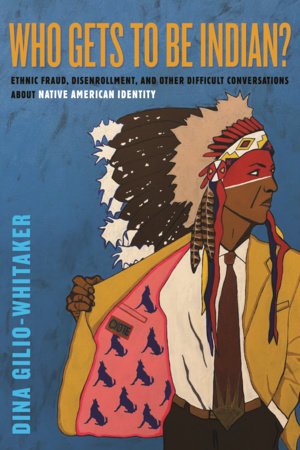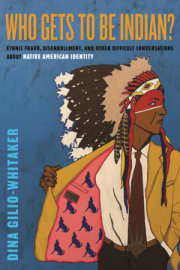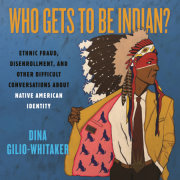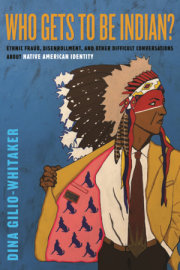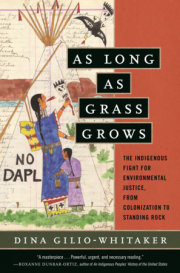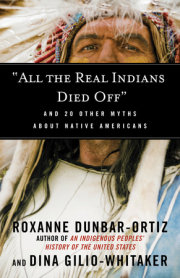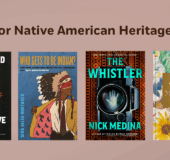Chapter One The Curious Case of Sacheen Littlefeather“Taking on another persona, you can be anything you want.” ~Sacheen Littlefeather, 2010[i]
Dateline: September 17, 2022, Hollywood, California. This was one of the weirdest days of my life, and that’s speaking as someone who was born in Hollywood and grew up in Los Angeles, one of the most interesting
and weirdest places on earth. L.A. is the land of illusion, after all, a place where the fusion of reality and fantasy is a set up for cognitive dissonance at any given moment. But what do you call it when cognitive dissonance is collective, when masses of people believe in a fantasy with little basis in reality, when they have believed a lie for so long that it has become their truth? On this day the discordant culmination of half a century of one person’s lies was on full display at the Academy Museum of Motion Pictures where an event was held honoring the life of Sacheen Littlefeather. Littlefeather had built a reputation for a peculiar but highly celebrated incident at the 1973 Academy Awards based on her supposed Native American heritage, cementing her dubious place in Oscars history. In the infamous incident Littlefeather rejected an Oscar on behalf of Marlon Brando for his role in
The Godfather, an experience Littlefeather, a budding actress at the time, claimed ruined her career
. The museum event was held to extend an official apology to Littlefeather for the damage that was (supposedly) done in the wake of the Oscars incident. Presiding over the ceremony were Academy representatives Jacqueline Stewart, Director and President of the Academy Museum of Motion Pictures; former Academy president David Rubin; current Academy president Janet Yang; CEO of Academy of Arts and Sciences Bill Kramer; and co-chairs of the Academy’s Indigenous Alliance Bird Runningwater and Heather Rae. It was a celebration of Native culture with all the Indigenous pomp and circumstance—a powwow drum, singers, and dancers, a performance by Native hip hop artist Calina Lawrence, Apache Crown Dancers, and hundreds of people in attendance at the Museum’s David Geffen Theater.
I was there with a couple of Native friends who have worked in the film industry, in what we might call Native Hollywood, for decades. We all knew people there and were intimately familiar with the Littlefeather Oscars’ story. I had a personal connection to it because I knew Sacheen from working with her as a journalist starting in 2012. My experience with her over the years, however, had changed my thinking about who she was, dislodging my belief about her claims to being Native American. Prior to that, like most people I took for granted she was an Indian. In 2016 nagging suspicions about the veracity of her claims began seeping into my thinking. By 2018 as I continued talking to people about my doubts and became aware that there were other people who doubted them as well, I was convinced she was a fraud—and besides all the evidence that was already publicly available, I had other, more personal evidence, given to me by Sacheen herself. Thus, my attendance at the Academy Museum ceremony was not as an ardent admirer of Sacheen Littlefeather as it was for most everybody else there that night, but as an observer of some kind of bizarre spectacle for which I was conducting research. For my companions (who were disbelievers) and I the whole experience was surreal, like being in a mind-bending movie where illusion is presented as reality; even the stark red aesthetics of the theatre reminded me of the psychedelic fantasy scenes in David Lynch’s
Twin Peaks. Things only got weirder with Sacheen’s death two weeks later and three weeks after that with the releasing of a bombshell article exposing her false identity. It was the inevitable opening of a Pandora’s Box that had been a long time coming, and the torrent of controversy it unleashed is certain to remake conversations about Native American identity and ethnic fraud in Indian country for years to come. It is an ideal launching pad for how we talk about what constitutes Native identity and will serve as a useful reference point throughout this book in our discussions about authenticity and fraud.
The story of Sacheen Littlefeather, born Marie Louise Cruz, cuts deep for many Native and non-Native people who believed her half-century long deception about being, as she often phrased it, “Native American Indian.” Sacheen’s act at the Oscars, while controversial at the time, elevated her to the level of cultural icon and she was perceived as a hero. She was believable; her appearance was convincing and the message was on point, necessary, and timely, all solidifying an illusion of credibility. The evidence in its entirety, however, shows that it was all a deliberate ruse and people were manipulated into believing an act. The story of Littlefeather’s Academy Awards incident has been recounted many times in print, audio, and film over the last half century. Some aspects of the story are consistent over time but altogether they constitute the tip of a much bigger iceberg that conceals a world of inconsistencies, contradictions, and blatant lies. Perhaps even more disturbing in the big picture are the ways people have been knowingly complicit in maintaining Littlefeather’s façade over the decades. Most of the inconsistencies and untruths by Littlefeather and others can be validated through simple fact checking and through the testimony of Littlefeather’s family members and at least one former friend, as I will show. Rather than assess every large and small false claim Littlefeather has made over time (there are far too many to cover in one book chapter) this chapter will instead focus on the most relevant claims and narratives she advanced that turned out to be verifiably untrue, especially relative to her claims to being American Indian.[i] What follows is the Sacheen Littlefeather story from the perspective of my experience with her and information that has become public since her death.
[i] Lisa Snell, “What Would Sacheen Littlefeather Say?”,
Native American Times, Oct. 26, 2010, https://web.archive.org/web/20211004010356/https://nativetimes.com/current-news/49-life/people/4479-what-would-sacheen-littlefeather-say. Accessed Jan. 10, 2023.
[i] Examples of some of the inconsistencies of Littlefeather (and other’s) claims that won’t be covered in detail in this chapter include whether or not she was actually present at the Alcatraz Island occupation; how she actually met Brando; and the story about John Wayne supposedly having to be held back from attacking her after her Oscar rejection (see a
Los Angeles Times article addressing research debunking the story in 2022, “Column: Did John Wayne Try to Assault Sacheen Littlefeather at the 1973 Oscars? Debunking a Hollywood Myth”).
Copyright © 2025 by Dina Gilio-Whitaker. All rights reserved. No part of this excerpt may be reproduced or reprinted without permission in writing from the publisher.

